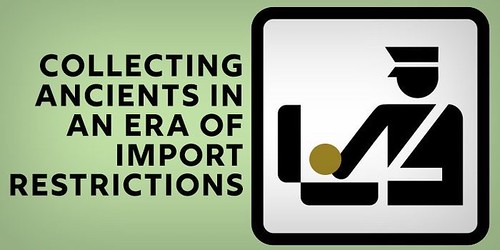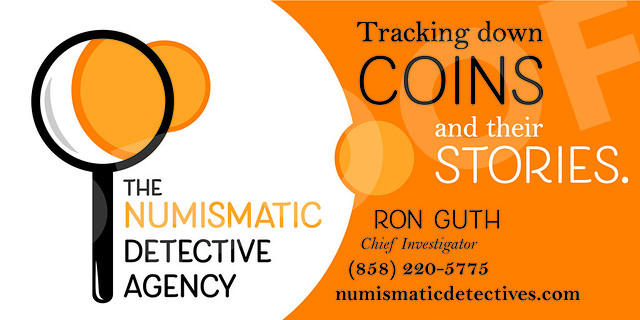
PREV ARTICLE
NEXT ARTICLE
FULL ISSUE
PREV FULL ISSUE
V25 2022 INDEX E-SYLUM ARCHIVE ANCIENT COIN IMPORT RESTRICTIONSA recent CoinWeek article by Tyler Rossi discusses import restrictions affecting collectors of ancient coins. Here's an excerpt - see the complete article online. -Editor Ask a collector of ancient coins if they have ever bought a coin from an overseas vendor, and you will more likely than not receive a positive response.
And while many collectors will have never experienced a problem with Customs, everyone will have heard at least a few horror stories of coins being delayed or even seized. While these collectors are not smugglers–and the vendors have almost definitely filled out the paperwork as accurately as possible–they have still fallen victim to an overly complex and ill-defined system of enforcement that represents what has been called by my CoinWeek colleague Mike Markowitz a It would be futile to argue that ancient coins are never subject to archaeological looting. In fact, a grouping of 91 gold Roman Imperial coins and 3,000 other coins, valued at over half a million dollars US, were recently seized in a massive operation called Pandora VI. Initiated by the Spanish Guardia Civil and organized by Europol, INTERPOL, and the World Customs Organization, it engaged 28 different countries. This operation made national news in March of this year. But while definitely a major case, Pandora VI is actually rather unusual, since most items of cultural importance seized by Customs are in fact smuggled coins. Usually, coins make up only a fraction of looted and smuggled goods. Despite this, many Western countries have begun to ban the importation of ancient coins. In the United States, this drive began back in 1983 when the national government first passed the Convention on Cultural Property Implementation Act (CPIA). This law was created as a vehicle to implement the 1970 UNESCO Convention on the Means of Prohibiting and Preventing the Illicit Import, Export and Transfer of Ownership of Cultural Property. By creating this framework, UNESCO was hoping to enable cooperation between governments in the fight to protect cultural heritage and limit the looting or smuggling of archaeological items. Shortly thereafter, the CPIA was used to establish the Cultural Property Advisory Committee (CPAC). This panel of presidential appointees has 11 members sorted into several categories: two represent museums; three represent the fields of archaeology, anthropology, and ethnology; three are experts in the international sale of cultural property; and the last three represent the general public. Unfortunately, this panel is not finely attuned to the details surrounding ancient numismatics.
To read the complete article, see:
Wayne Homren, Editor The Numismatic Bibliomania Society is a non-profit organization promoting numismatic literature. See our web site at coinbooks.org. To submit items for publication in The E-Sylum, write to the Editor at this address: whomren@gmail.com To subscribe go to: https://my.binhost.com/lists/listinfo/esylum All Rights Reserved. NBS Home Page Contact the NBS webmaster 
|

